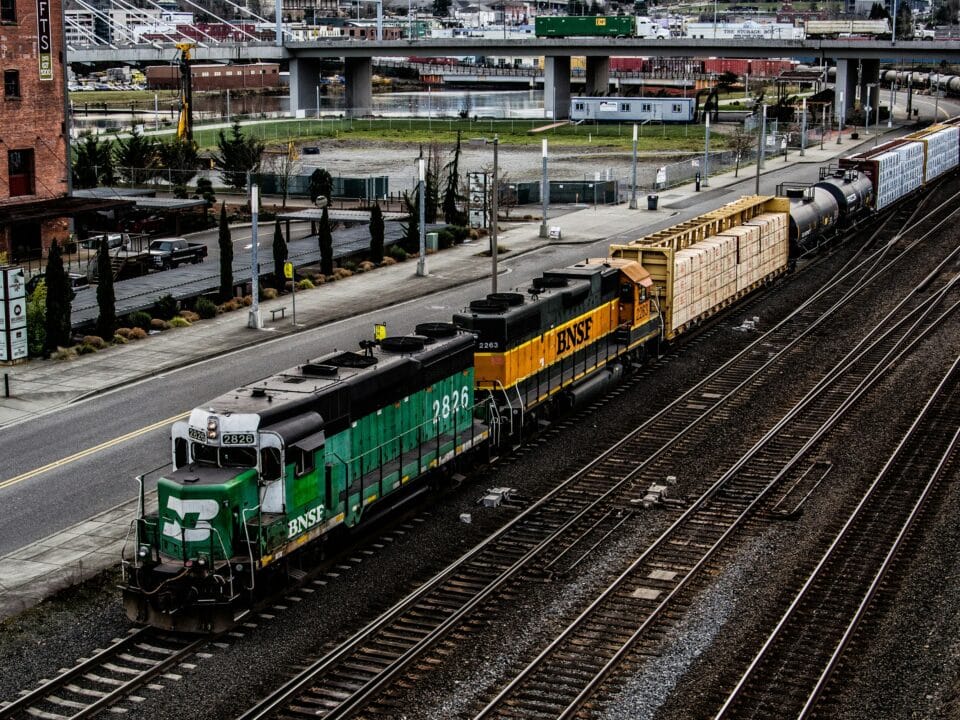Reducing plastic pollution through eco-design

Kitting: a key service in e-commerce fulfilment
24 October 2024
How do you design your e-commerce packaging?
19 June 2025- 3 minutes

Plastic pollution is one of the major environmental challenges of our time. The logistics and e-commerce sectors are no exception. Consumers are demanding more environmentally-friendly solutions. The players in the logistics chain (e-tailers, carriers, logisticians) play a key role in reducing plastic and, in particular, its production.
With 460 million tonnes of plastic produced every yearthe environmental and health impact of this material threatens biodiversity, climate and human health. Two sectors are particularly at risk: packaging and textiles.
Discussions on an International Treaty against Plastic Pollution are accelerating. It is therefore urgent to rethink our practices to respond to the crisis and invest in sustainable alternatives.
An urgent environmental and social problem
Plastic packaging is omnipresent in supply chains. They account for a significant proportion of the waste generated by the e-commerce sector. They are often justified by the need for protection or convenience. However, their production and disposal contribute significantly to pollution. Indeed, plastic has an impact on biodiversity and public health, as it is a major contributor to CO² emissions.
In this context, current e-commerce and logistics practices are accentuating a global problem. Urgent solutions are needed.
What are the challenges involved in reducing plastic pollution?
For companies, plastic pollution is not just an environmental issue. It also involves strategic risks.
Customers are increasingly sensitive to sustainable practices. Unnecessary or polluting packaging damages brands’ reputations.
Governments are therefore adopting strict laws against single-use plastics and encouraging the use of alternative materials.
Eco-responsible solutions often mean lower costs (less packaging, optimized logistics).
Companies adopting sustainable practices strengthen their position in a market where sustainability is becoming a decisive criterion.
Why is it no longer enough to recycle and reuse plastics?
Often seen as a solution, recycling is showing its limitations in the face of the ecological emergency.
According to a study by Berkeley Laboratory, a policy based solely on recycling and improving collection systems would fail to meet the climate objectives of the Paris Agreement.
Recycled plastic accumulates hazardous chemical substances over the cycles, sometimes making it more toxic than virgin plastic.
The Paris Agreement calls for limiting temperature rises to well below 2°C. It is therefore imperative to reduce global plastic production by 75%.
This means going beyond recycling to adopt more ambitious solutions. This means reducing our dependence on plastic at source.
Companies and their key role in the fight against plastic pollution
Measuring impact: the plastic footprint
The first step to effective action is to measure our plastic footprint. This is a key indicator for identifying the sources and volumes of plastic waste generated.
Tools such as the Plastic Footprint Network or the methodologies proposed by the World Business Council for Sustainable Development (WBCSD) enable organizations to assess their impact in a rigorous, standardized way. This measurement is the basis of a solid and credible reduction strategy.
Setting ambitious yet realistic goals
A company can then get involved in international initiatives such as :
- The 3R Initiative (Reduce, Reuse, Recycle), which encourages the implementation of strategies to reduce single-use plastics and increase recycling rates.
- Global Commitmentan initiative supported by the Ellen MacArthur Foundation and the United Nations Environment Programme, which sets clear targets for the reduction of plastic waste.
In addition to internal efforts, each company can offset part of its plastic footprint. This can be done by investing in waste management projects via credit purchasing systems, such as those offered by Verra or Ocean Bound Plastic (OBP).
Total transparency through reporting
Visit Corporate Sustainability Reporting Directive (CSRD) requires companies operating in the European Union to report on their environmental impacts, including plastics management.
Concrete solutions to reduce your plastic impact
At Dokeraa, we take great care to reduce our use of plastic in our logistics operations.
Our mission is to minimize the environmental impact of e-commerce logistics and transport. We do this while favoring circular economy and eco-designed products, through an inclusive corporate policy focused on the social interest.
This is how we support our customers, right from the integration stage, in reviewing their processes to eliminate the use of plastic. We believe that every step counts.
Optimizing the use of packaging materials: at the heart of our approach to reducing plastic pollution
By replacing conventional plastics with biodegradable or recycled alternatives, we reduce the amount of virgin plastic used. We are also working on reusable packaging solutions to minimize waste. As a logistician, we are a source of ideas. We strive to use as much kraft material as possible to offset this overproduction of plastic.
We apply eco-design principles to our packaging and logistics solutions, integrating sustainable materials, optimized designs and extended life cycles.
One of the materials we favor in this approach is kraft, a robust, recyclable and biodegradable paper. This material offers a reliable alternative to traditional plastics, particularly for uses such as :
- Secondary packaging: replaces plastic film for wrapping or cushioning products.
- Shipping solutions: Kraft cartons and envelopes provide protection while limiting the use of single-use plastics.
- Kraft paper adhesive: seals parcels effectively, while remaining fully recyclable with cardboard.
Raising awareness and working together: a strategy to limit plastic pollution
Combating plastic pollution requires a collective effort. We work with our partners, suppliers and customers to develop innovative solutions. We are committed to raising awareness of the importance of reducing plastics throughout our supply chain.
The success of recovery and recycling depends on the involvement of all stakeholders: businesses, consumers and partners. We play an active role in raising awareness by educating our customers, setting up partnerships for innovation and supporting initiatives.
We align our actions with new regulations (campaigns and international treaties), such as those underway on plastic pollution, to contribute to systemic change.


